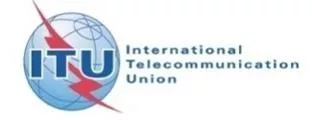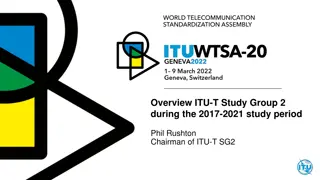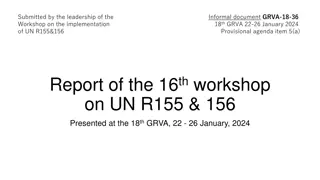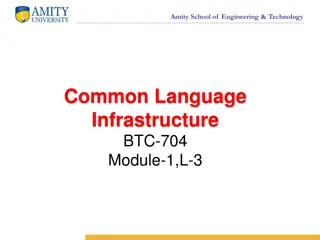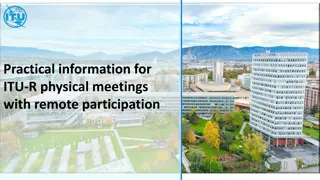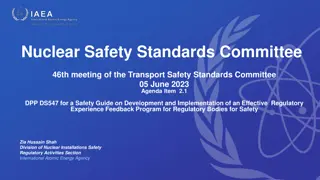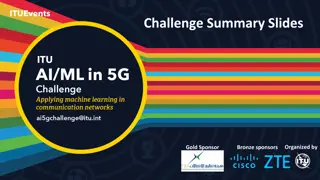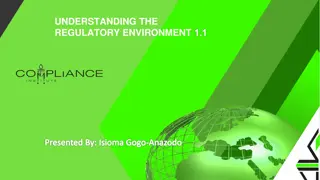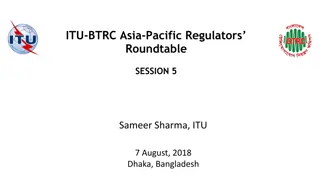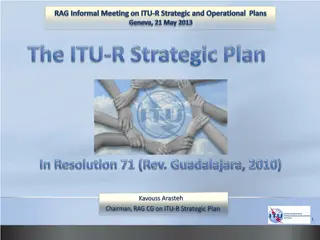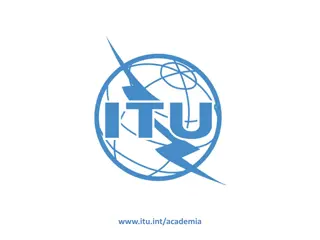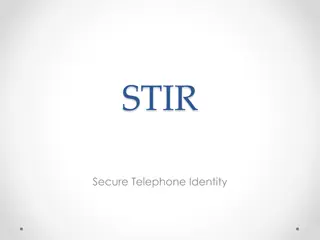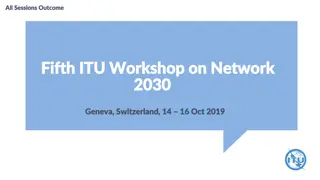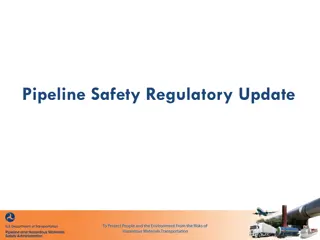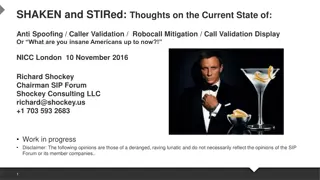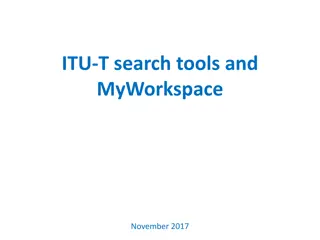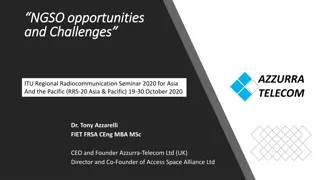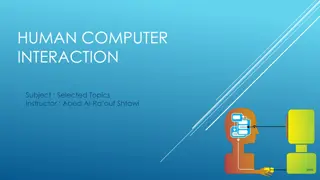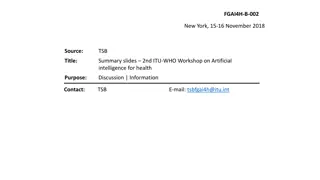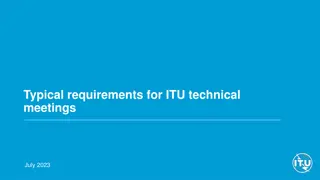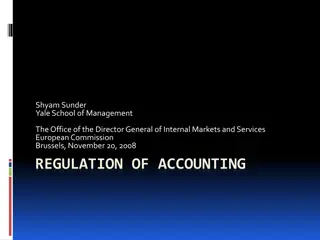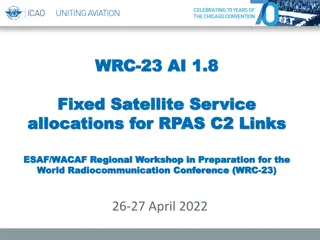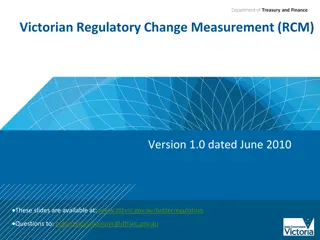Regulatory Aspects of CPND, CLI, and OI in ITU Workshop on Caller ID Spoofing
The ITU Workshop on Caller ID Spoofing in Geneva addressed the regulatory aspects of Calling Party Number Delivery (CPND), Calling Line Identification (CLI), and Origin Identification (OI) in the context of the International Telecommunications Regulations (ITRs). Divergent views were discussed regarding the inclusion of CPND in the treaty, with considerations for national sovereignty, operator freedom, security concerns, and economic factors. The workshop highlighted the importance of harmonizing national laws and ITU recommendations to ensure the integrity and security of telecommunications networks.
Download Presentation

Please find below an Image/Link to download the presentation.
The content on the website is provided AS IS for your information and personal use only. It may not be sold, licensed, or shared on other websites without obtaining consent from the author. Download presentation by click this link. If you encounter any issues during the download, it is possible that the publisher has removed the file from their server.
E N D
Presentation Transcript
ITU Workshop on Caller ID Spoofing (Geneva, Switzerland, 2 June 2014) The Regulatory aspects of CPND, CLI and OI the ITRs Sherif Guinena SG2 Chairman Geneva, Switzerland, 2 June 2014
Contents Background on WCIT discussions. The ITRs, Dubai 2012 Regulatory aspects Conclusions and recommendations Geneva, Switzerland, 2 June 2014 2
Background WCIT is the ITU World Conference on International Communications , Its output is an international treaty, Named the ITRs (international Telecommunications Regulations), And it is binding to its signatories. Last was held in Dubai 2012. Geneva, Switzerland, 2 June 2014 3
WCIT Divergent Views on CPND Long debate on inclusion of CPND, CLI and OI in the treaty (i.e. is mandated). Examples of one camp s view: some countries do not have the capabilities to ensure that calling party identification is delivered; Would limit operator freedom; Relevant Recommendations Should not be binding by a treaty; but addressed on a national level, It would be difficult to impose obligations on Voice over IP providers, who are not regulated. Operators need the flexibility to manage their own networks and apply Recommendations as appropriate. Technology evolves, the sovereign rights of Member States should not be restricted, economic arbitrage cannot be restricted. Geneva, Switzerland, 2 June 2014 CPND: Calling Party Number Delivery CLI: Calling Line Identification OI: Origin Identification 4
WCIT Divergent Views on CPND Examples of the views of another camp : Non delivery of CPN forms great challenges to malicious call tracing, national security, counter-terrorism and proper accounting and settlement. Calling party delivery is not just a matter of consumer protection, it also affects public policy issues such as security and combating fraud; need to ensure confidence and security in the use of ICTs, Some telecommunication operators refrain from including or implementing CPND facilities in their networks for commercial/economic reasons. MS should harmonize national laws for what concerns international transmission of calling party information. Administrations and telecommunication operators significantly didn t apply relevant ITU-T Recommendations. Geneva, Switzerland, 2 June 2014 5
The Triangle Economic Fraud Number Spoofing Consumer rights Security Geneva, Switzerland, 2 June 2014 6
The compromised ITR provision on CPND/CLI and OI Provision #31B: 3.6 Member States shall endeavour to ensure that international calling line identification (CLI) information is provided taking into account the relevant ITU Recommendations. Could be read as follows: Compromised obligation: shall endeavour to ensure ! Additionally, ITU Recommendations be taken into account CLI understood to stand for: CPND,CLI and OI. Geneva, Switzerland, 2 June 2014 7
A companion ITR provisions Provision #30: 3.3 Authorized operating agencies shall determine by mutual agreement which international routes are to be used. , the origin authorized operating agency has the choice to determine the routing of its outgoing telecommunication traffic, taking into account the interests of the relevant transit and destination authorized operating agencies. Provision 31A: 3.5 Member States shall endeavour to ensure that international telecommunication numbering resources specified in ITU-T Recommendations are used only by the assignees and only for the purposes for which they were assigned; and that unassigned resources are not used. Geneva, Switzerland, 2 June 2014 8
Role of MSs and the ITU MSs should exert every effort to ensure that operating agencies deliver CPN/CLI/OI information. National Policies and Regulations are a proper implementation mechanism ITU-T should develop/revise relevant Recommendations to support the objectives of this provision. Spoofing of Caller ID is only one of the implications to be considered. Geneva, Switzerland, 2 June 2014 9
Examples of National Policies and Regulations USA has adopted a national law for truth in caller ID , supported with FCC rules, guides and regulations. CEPT (ECC RECOMMENDATION (11)02 ): 1) that national regulations/guidelines regarding the generating and handling of OI/CLI should be developed; 2) that all electronic communications operators and service providers, national and international, involved in an electronic communication service that uses an E.164 number or other originating identifier shall provide or transport and forward OI/CLI information adhering to ITU-T and/or ETSI related international standards; MSs revision of their jurisdictions, policies and regulations , e.g. with similar mechanisms, should be envisaged, but on the international level. Geneva, Switzerland, 2 June 2014 10
Final Comments ITU should develop and revise relevant technical as well as policy orients Recommendations; MSs should revise and/or adopt policies and regulations to ensure that CPND/CLI/OI are confidently provided on the international level; ITU can play a good role in supporting the development and harmonization of these regulations; ITU can play an important role to facilitate international cooperation. Geneva, Switzerland, 2 June 2014 11
Thank You Geneva, Switzerland, 2 June 2014
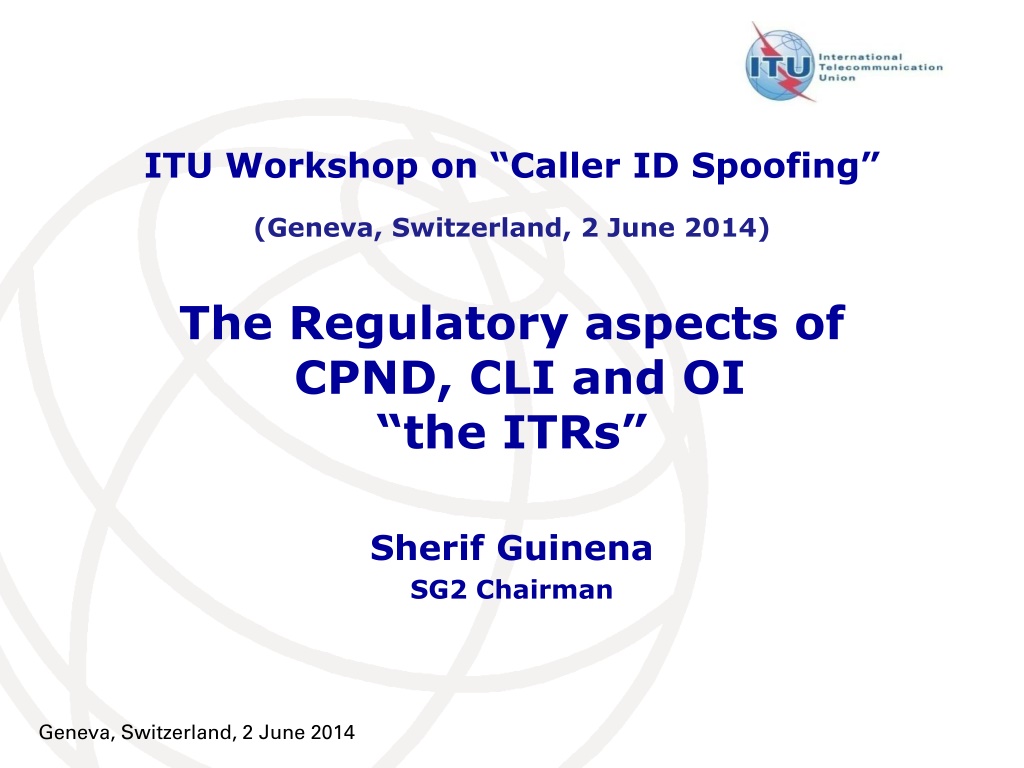
 undefined
undefined
